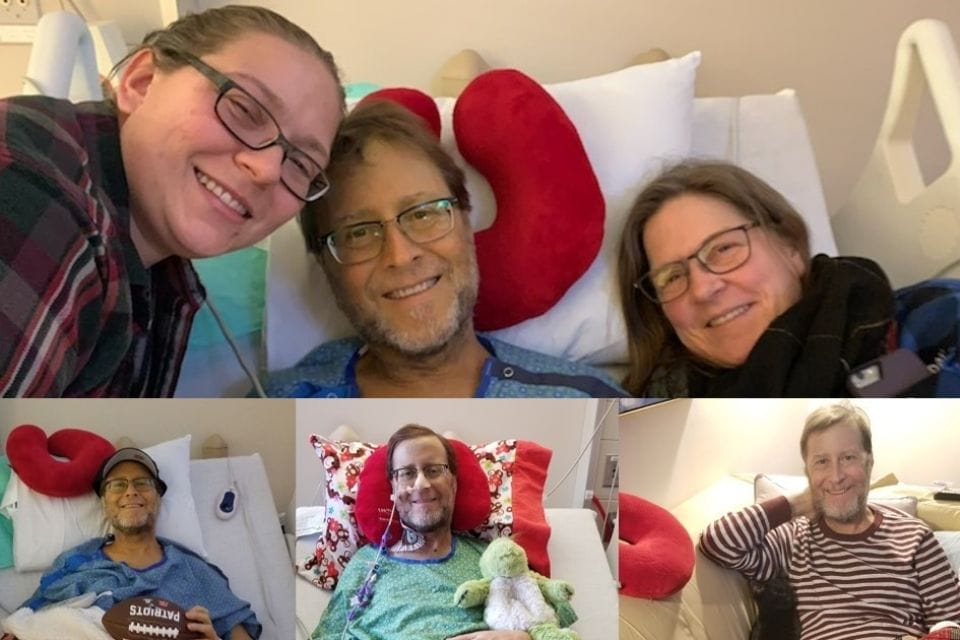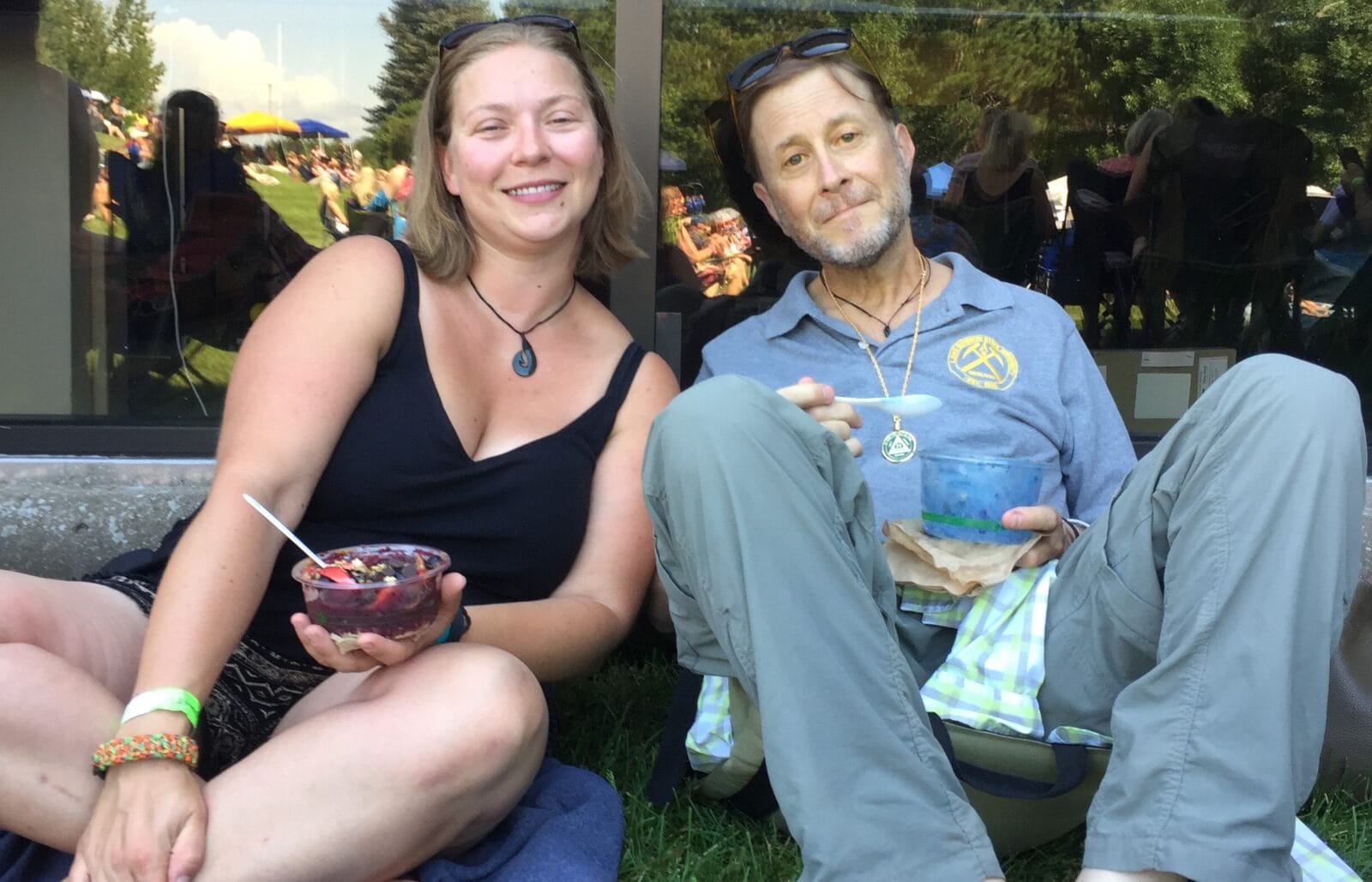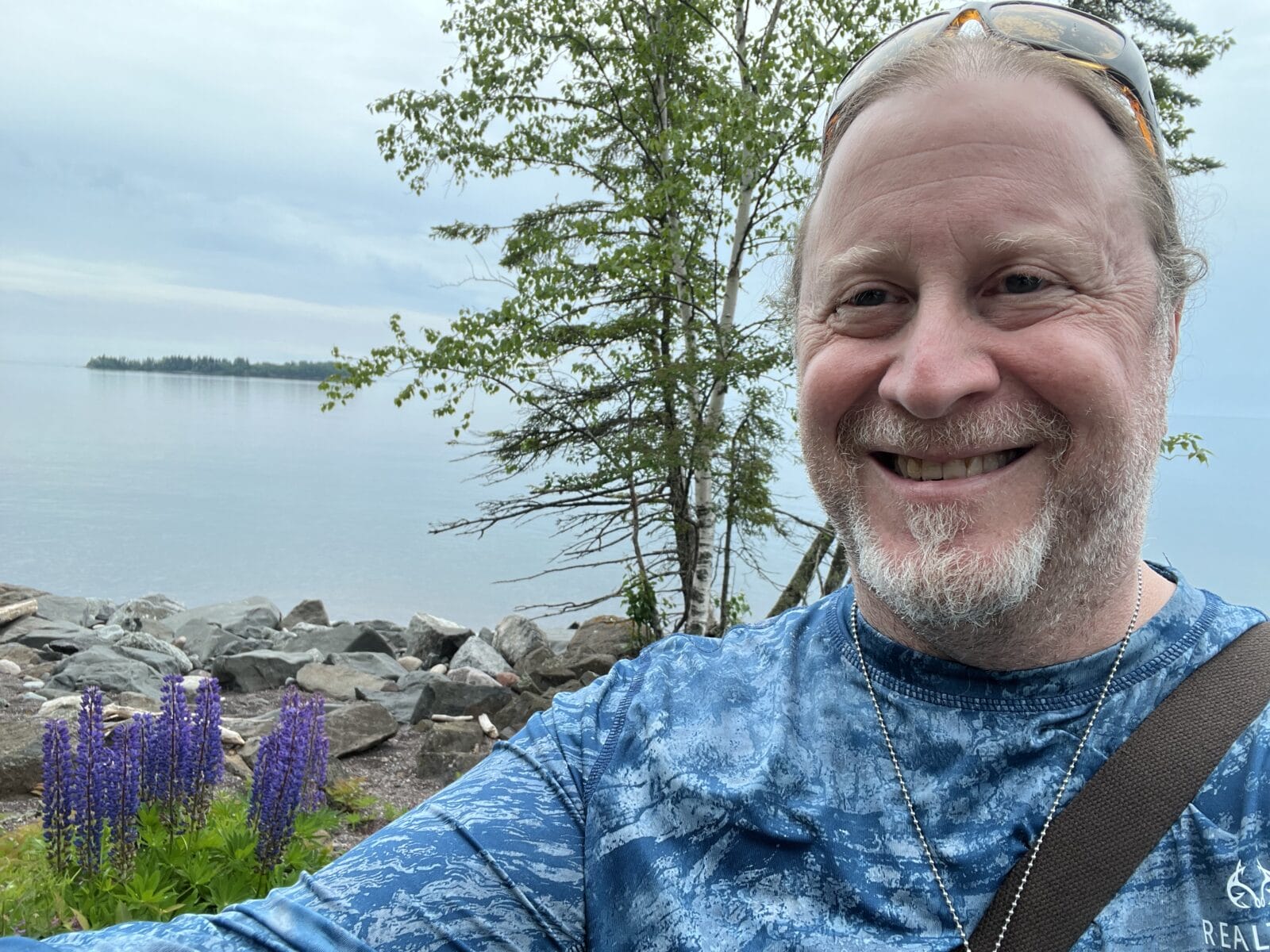Small Victories Lead to a Second Chance for a Liver Recipient
William (Bill) shares his liver transplant story and the importance of mental and physical health alike.

I suppose it’s human nature to ignore physical and mental struggles as inconveniences. No one wants to think any individual malady will snowball. Ignorance is bliss, until it isn’t.
As we age fear builds, alongside increased awareness of prostate issues, cancers, joint and spine problems, and versions of dementia. In “middle age,” we begin to lose people with greater frequency, so we increasingly sidestep bad personal or family news. The result of all this is that one has to be pushed to the edge of impairment or disability to seek medical treatment. If conditions become dire in this 11th hour, then windows for effective treatment begin to close rapidly.
Substance Use Disorder and Transplant
In February 2019 I had uncontrolled bleeding in my leg that required a 10-day hospital stay. It was at that time my blood chemistry was found to be severely compromised. Thus began a life and death struggle 35 years in the making due to substance use disorder (SUD), in my case alcoholism. Alcoholic cirrhosis had taken me toward end-stage liver failure.
SUD is a biochemical, psychological, physical, and likely genetic disease that compromises all of your higher thinking. It may be the only disease that tries to convince you that you don’t have it. Leading up to that year I was fortunate to have a support network that stood by me after years of SUD behavior ranging from shenanigans to physical, reputational, and relationship damage. At the behest of family, I spent seven weeks in inpatient treatment in the summer of 2019, an experience I still remember fondly. The feeling of asking for and receiving the help I needed was both terrifying and empowering. It launched me into the long-term sobriety I have today.
Through the fall of 2019, I had what seemed like small victories. I cobbled together an SUD outpatient program at a nearby health center and I attended AA meetings, maintaining my sobriety. I had regular visits to my primary care doctor. I maintained my full-time schedule as a geology professor, but weakness and fatigue were getting the upper hand. In November 2019, any small victories were vastly overshadowed by my rapidly declining health. I was admitted to the ER and put on immediate blood transfusions and infusions.
Thanks to health screening in early recovery, I was aware of the M Health-Fairview liver transplant unit. In general, six months of sobriety is required to qualify for consideration of a liver transplant. With 40-60% of transplant program participants having alcohol as a primary or contributing factor to severe cirrhosis, there is an intensive screening process to qualify for a transplant. The gift of an organ donation is not taken lightly by the donor families, medical providers, or organ recipients and their caregivers.
The schedule of medical interventions that followed were mind numbing. Over a period of nine days, I had an 11-hour critical care transport from MI to Minneapolis, a week in the hospital for transplant screening, a return to MI, and a life flight back to MN as my end was near. Three days after landing, and after a 10-hour surgery that included 17 units of blood, I miraculously had a new liver thanks to my hero donor and his family, and the talents of an amazing array of medical professionals.
The Physical and Mental Road to Recovery
I suffered from severe cognitive and physical impairments for two years. I had to learn to accept, even embrace, my vulnerabilities; to place my health and safety in the hands of others. It was during the Covid-19 shut down. My wife and daughter were my captive caregiving audience, which was very hard on them. They had to monitor me for any post-surgical complications and become experts on potential collateral issues. Just my medications were 40+ pills per day, and side effects were unpredictable and common. I was incapable of any form of self-care.
During this time, I slowly began to process the extraordinary chain of events that saved me. There were many days of physical pain, depression, and survivor’s guilt: What is the family of my deceased donor going through? Why did I receive my gift ahead of someone else? How can I have ended up being such a burden to others? On top of all, this was the continued programming critical toward keeping me focused on long term SUD recovery.
The wait to see where I could get each week, much less month, was agonizing. There were small steps forward and significant setbacks. There were battles with the unpredictable behavior of my internal systems, pain management, blood chemistry, and nutrition. My physical and occupational therapy could only progress as fast as my cognition and coordination. I learned to trust, even embrace, the most embarrassing and invasive prodding, because it came from those intimately involved in my wellbeing. Every day I experienced the sad state of disability accommodations, my own limitations, and the judgmental stares of those that only saw me as a moving obstacle.

Just after the two-year anniversary of my transplant I had another round of comprehensive testing that showed more of my inherent abilities…with some notable deficits. Yet the shortfalls didn’t appear to be a result of damage, but of how my brain processes the world around me. This is when ADHD was put on the table.
My therapists and family started to connect the dots. All of a sudden, the self-medicating with alcohol, struggles with attention and focus, and my wide ranging, frenetic thoughts started to make sense. Some childhood experiences fit the pattern. This didn’t fully explain any single mental or physical health issue, but the possible effects of such an undercurrent since childhood were an epiphany. The most cataclysmic time of my life resulted in an empowering revelation! This reinforced the need for mental health awareness separate from but related to my SUD.
The Stigma of Substance Use Disorder During Recovery
I am still figuring out the ADHD part of my journey. Dealing with the overall, traumatic effects of this journey makes counseling mandatory. It is wonderful to talk to people who can tell you that you are not crazy, you can process your pain, and that peace is the reward for honesty and humility. My long-term SUD recovery will never end, but that part of the journey now comes with levels of self-awareness and discovery that are emboldening!
Post-transplant the stigma narrative continues. When learning of my transplant due to alcoholic cirrhosis I have had various people, including medical professionals, blurt out “Wow, and they gave you one?” This question passes judgement without information, bypasses compassion, and devalues and dehumanizes the individual. Those with genetic (not substance related) liver defects are often subject to this same spot judgement, unfairly questioning their past and worthiness. People lose sight of the fact that we are spouses, parents, siblings, caregivers, employees, bosses, mentors and friends.
I try to use these instances as teaching moments. I offer gentle encouragement for better understanding of SUD as a disease and the rigorous guidelines to qualify for an organ transplant. Due to my current professional roles, I can also relate the best practice, compassionate care for those amid a tortuous journey to wellness.
Life After Transplant
So here I am 43 months post-transplant. I still have fatigue and stamina issues, both physical and mental, and occasional abdominal pains. There are days where I feel my mental acuity is down, whether due to fatigue or vestiges of cognitive skips. I simply need to maintain awareness of how these disruptions affect me, both from a safety and mental health perspective. I rely heavily on my family and friends to alert me to problems that I may not readily identify myself. I can honestly say I am at relative ease with my vulnerabilities, as that awareness comes with strength and liberation.
It is the immunosuppressant medications that keep my immune system low, helping to prevent organ rejection. I need to take these daily for life. I also need to be acutely aware of circumstances that could put me in jeopardy. I avoid foods with a higher potential for food-borne illness (sushi, rare or uncured meats), and closely watch food service hygiene. I have to avoid freshwater ponds and lakes where bacteria and parasites may lurk. Even minor cuts and bruises need to be watched carefully. I always travel with hand sanitizer, cleaning wipes, masks, and basic first aid supplies.
Yet with mental, logistical, and lifestyle adjustments, this is all far from limiting. Simply reflecting on one’s imminent mortality is enough to create gratitude lists for the present all day long! I feel as energized by what I am still trying to learn and fix as much as what I have been able to overcome. This is where the transplant and SUD recovery circles go back to addressing mental health.

My journey is still in progress, and I hope there are many more chapters left in my story. While there will undoubtedly be countless remaining challenges, my end goal is simple: To be the most authentic, resilient, best version of myself that I can be. I know that this goal is always in sight if I follow one guiding principle: Trust my journey.
 Skip to main content
Skip to main content
